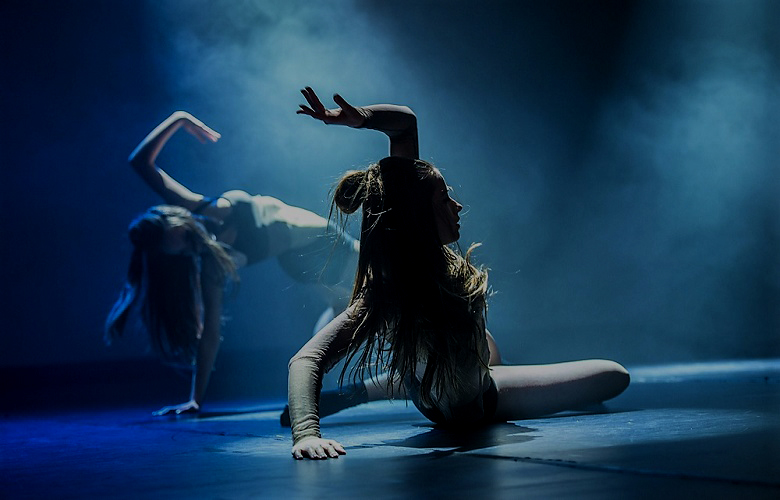
At some point of a dancer’s professional career, the big questions arise. Do I need to join a performers’ union? Why would I? Why would I not join? What are the benefits? Is it better to remain a non-union dancer? All dancers form their own opinions regarding unions on their own time, as they cultivate their professional careers. There is no right or wrong answer to these questions; the answer is personal, as different dancers have individual goals and priorities.
It is a good idea to get informed before setting goals and making career decisions. Let’s explore!
Performers’ unions regulate working conditions to make them suitable and specific for the needs of dancers. They regulate hours worked and breaks, and monitor safety conditions. An example of a specialty contract would be the AGVA (American Guild of Variety Artists) contract for Radio City Rockettes. This collective bargaining agreement (CBA) states that dancers can only wear heels (character dance shoes with heels) for a total of three hours per rehearsal day. If the work day is divided into four segments, each 1 1/2 hours long, the ladies can only wear heels for two rehearsal segments.
Health coverage is among the top reasons to join a union. Benefit determination is different for each union. For some unions, benefits are based on monies earned, and for others, it is based on the numbers of weeks worked. Some performers have to work to accumulate the designated number of work weeks before receiving benefits. Others, like The Rockettes, receive one full year of health coverage starting the first day of rehearsal.
Unions usually offer some type Credit Union and savings plan. Financial security and financial planning are almost never discussed while exploring a career in dance. Union members are given the option to start a 401k plan and can contribute a portion of each paycheck. The Credit Unions also offer connections for discounted home and car insurance plans.
Unions and union jobs usually offer services including funds and counseling for dancers transitioning into alternative career fields. Web sites also provide links to these members’ services.
It is a myth that union dancers can not do any other work that is non-union. Union performers can not work any job that is in the field that their union represents. For example, a member of Actors’ Equity Association can not perform or work in any other stage shows that are scripted. This is because Equity protects members of the live, scripted theater. Dancers are free to do non-scripted industrials and corporate events. They are free to dance and work in union or non-union television shows and movies. If a dancers decide to do a non-union tour of a scripted musical because they think it is the only chance they will have at doing this dream show, and they are caught, their union memberships will be terminated for life. Another example includes SAG/AFTRA (Screen Actor’s Guild/American Federation of Television and Radio Artists) members. Once a dancer becomes a member of that union, they can not be cast in non-union commercials of any kind.
Some people think “yes,” some people think “no.” The biggest deciding factors for dancers to join a union usually have to do with gaining the opportunity to receive health benefits and better pay in general. As an adult thinking about the future and accepting that there is little job security in show biz, working non-union may not be an option. After accumulating a good amount of professional experience and enough credits on their resumé, people sometimes find it unjust that some dancers would work non-union, especially under certain circumstances. If a Broadway-style show goes on tour as a non-union production, and the Broadway cast made or currently makes twice the amount as the touring cast, many performers balk. On the flip side, if it is difficult to get a union card and contract, and there seem to be more non-union productions and auditions, so some performers prefer to remain non-union. If a non-union dancer has waited tables while auditioning for union jobs for two years, they may just want to, regardless of the pay, practice their craft. Dancers usually just want to work and be on stage or in front of the camera.
A dancer wants to dance. Because of the ebb and flow of the economy, there are sometimes many more non-union jobs available to performers.
Dancers new to the business, regardless of their thoughts of busting into the business as a Broadway or company feature, most often have to “pay their dues” and gain professional experience. Many young dancers choose to work non-union, especially at first, to build their resumé and meet people in their industry.


Author Jill Ann Wolins started dancing as a child and continued competitively at the age of 9. She extended her dance education at the State University of New York in Buffalo, receiving her BFA as a dance major. Jill was awarded numerous scholarships for dance including Duke University American Dance Festival (ADF), Giordano Chicago, and six years at Steps on Broadway, NYC, which aided her transition into the professional dance world. Her professional dance career started with Disney, Orlando. Jill continued as a NYC Radio City Rockette for ten years. Broadway National tours include The Producers and Will Rogers Follies, and regional tours include Sweet Charity and Grease! TV and Film credits include The Producers, David Letterman (CBS), Disney Christmas Special (ABC), and Radio City Christmas Spectacular holiday commercials. Some of Jill’s favorite credits include assisting the choreographer, John Dietrich, for the opening segment of the Macy’s Thanksgiving Day Parade, performing in tribute to Lena Horne at Lincoln Center, and dancing with Chita Rivera at the Kennedy Center, DC. Some international dance and teaching experiences include appearances in China, Japan, Russia, UK, Australia, and the United Arab Emirates. Jill Is proud to have worked with the United Nations Association in HIV/AIDS affected areas of South Africa. Jill currently travels across the country and around the globe teaching master classes and setting choreography. She is currently a faculty member of the Wild Dance Intensive and Power Pak Dance Camp. Jill teaches the Top Gun Audition master classes at Starpower National Competitions and co-hosts prestigious dance events like the World Dance Championships. Because Jill values guidance and education for young dancers, she also enjoys being co-director of the World Dance Pageant. Jill is thrilled to share her books in the “Are You Ready?” series. “Dance Competitions: Are You Ready?” is perfect for young competitive dancers, guiding them to have the best, most successful experience possible. “Dance: Are You Ready for the Next Step?” is a must read for all dancers that want to dance in college and beyond, preparing them to be successful in the professional dance world. Jill is proud to be a part of the dance community in TheatreArtLife. We are an international community of dancers and artists, united through our love and passion for dance!
Read Full Profile© 2021 TheatreArtLife. All rights reserved.

Thank you so much for reading, but you have now reached your free article limit for this month.
Our contributors are currently writing more articles for you to enjoy.
To keep reading, all you have to do is become a subscriber and then you can read unlimited articles anytime.
Your investment will help us continue to ignite connections across the globe in live entertainment and build this community for industry professionals.